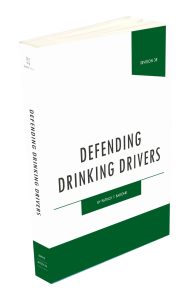Search
What Does Michigan Law Say About Jury Nullification?
The black letter law in Michigan suggests that juries have the power but not the right to exercise jury nullification.[i] Nevertheless, the practice of law is all shades of gray, and the arguments made by lawyers are often in the penumbras of black letter law.
For example, some Michigan cases have indicated that nullification may be argued where nullification is a recognized legal defense. Because a trial judge may exclude a defense attorney from presenting to the jury evidence supporting a defense that has not been recognized by the legislature[ii], the judge can preclude a lawyer from arguing for nullification.
This does not mean that the power of nullification can be taken away from the jury, and a judge cannot explicitly tell a jury that they are precluded from exercising jury nullification. In one Michigan case where a judge told the jury that jury nullification was inconsistent with the recognized power of the jury, the verdict of guilty was reversed.[iii] In support of their reversal, the court indicate that:
 Michigan Criminal Defense Lawyer Blog
Michigan Criminal Defense Lawyer Blog


